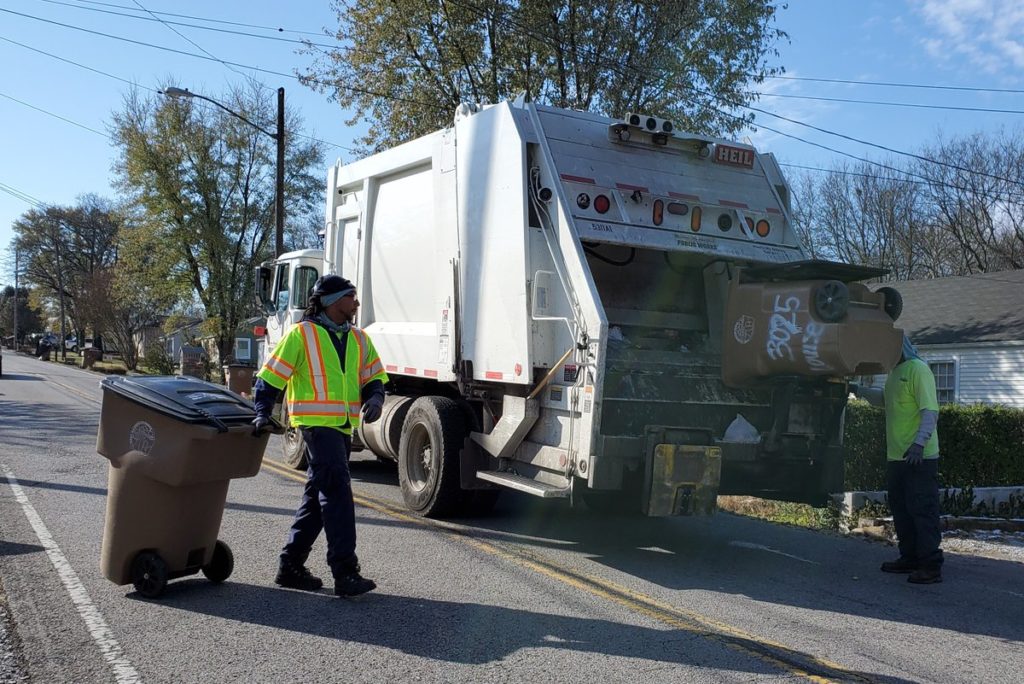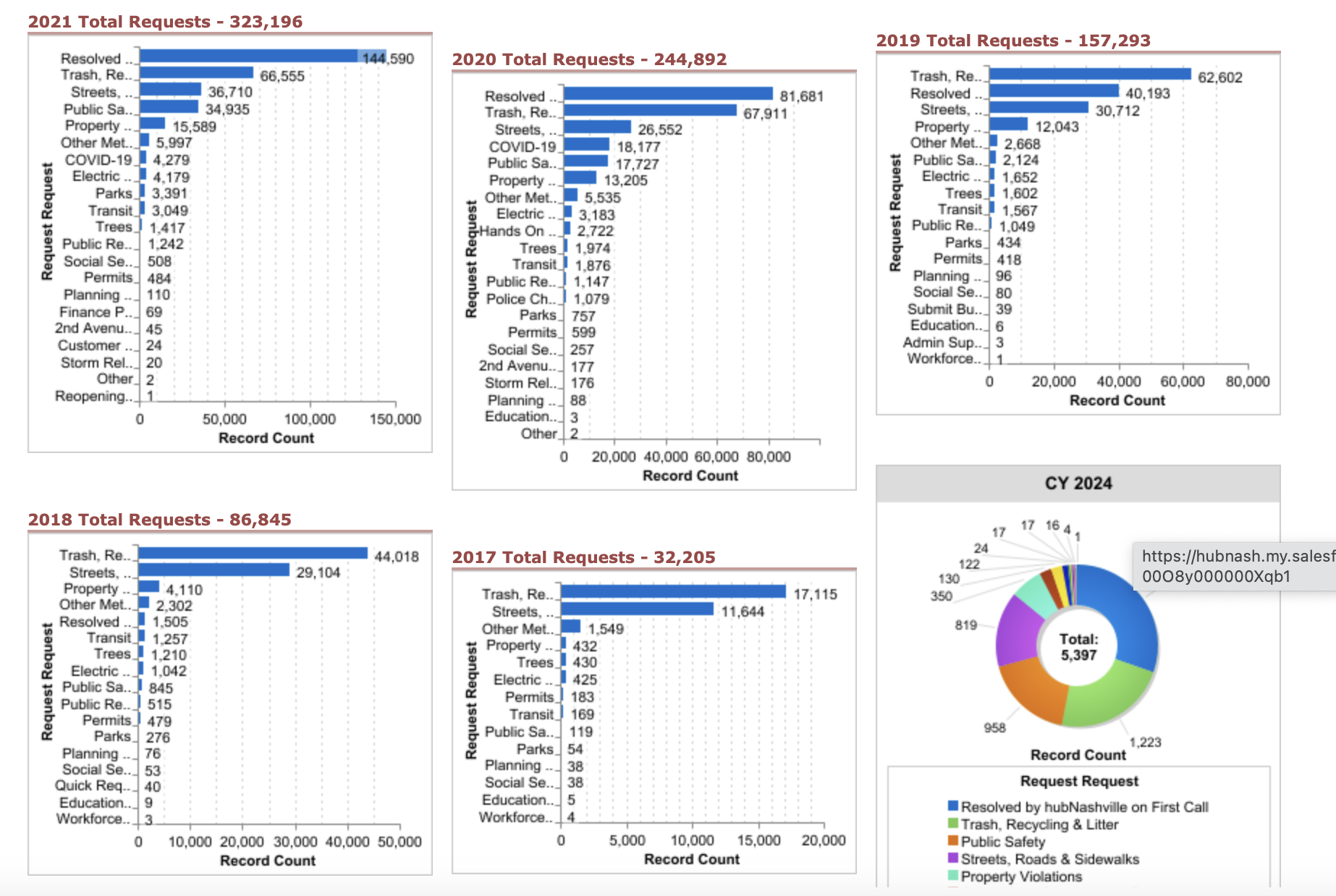
The city of Nashville has made a point of prioritizing “customer service.” What does that mean? It hinges largely on “hub-Nashville,” — the system where residents can place requests, ranging from repairing a broken streetlight to improving accommodations for people with disabilities.
Since its launch in 2017, the system — which has seen multiple mayoral transitions and navigated major disaster recovery efforts — has grown significantly.
Nearly 300,000 requests were placed last year, either via website, app, or phone. That’s over 800 per day. And they’re coming in at a rate three times higher than five years ago, as the service was just getting started.


In part, that could be a result of the simplicity of the system.
Take a request for a new trash can, for example: it requires a download of the hubNashville app, a selection of the garbage icon (representing “Trash, Recycling and Litter” — one of the seventeen featured requests). Click “cart service.” Fill in a few blanks. Submit a $65 payment and just like that a new cart should be on its way.
That process can take less than two minutes.
It’s popularity is also, somewhat, a result its usage during 2020. Between the pandemic, the downtown bombing and the tornado, many recovery efforts were routed through hubNashville.
Erin Williams, who oversees the system, says she can attribute many Nashvillians’ awareness of the system to these efforts, particularly the COVID response.
“There was a lot of focus during those press conferences on directing people to the hub,” Williams says. “I think that helped.”
And this awareness is important. The city really wants as many requests as possible to go through hub — and not options like calling 911. Because, as residents direct non-emergent requests — like thefts or fender benders — to hub, this alleviates pressure on emergency responders.
But the work isn’t over. Williams says she is always trying to make Metro services accessible to residents in the easiest way possible.
“It is ever growing and changing. If you see something that you think we should know about, let us know — let us know what we can do to make it work better.”
One element that has helped is having a highly invested mayor. So far, Mayor Freddie O’Connell has made hubNashville a focal point. In fact, Williams says he’s been one of its biggest users, even before he took office.
Under his administration, the city has made technical improvements and hired two Kurdish speaking representatives (there are already two Spanish speaking representatives on staff).

